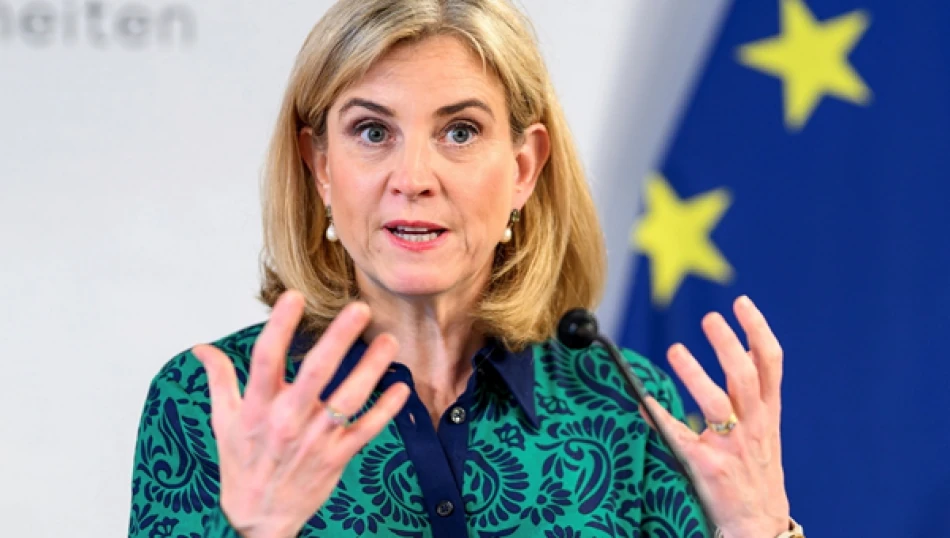
Austria Condemns Israeli Attack on Doha as Violation of Qatar's Sovereignty
Austria Condemns Israeli Strike on Doha as Violation of Qatari Sovereignty
Austria's Foreign Minister Beate Meinl-Reisinger has strongly criticized an Israeli attack on Doha, calling it a breach of Qatar's territorial sovereignty that undermines ongoing diplomatic efforts to secure regional peace. The condemnation highlights growing international concern over military actions that cross sovereign boundaries, particularly as Qatar has positioned itself as a key mediator in Middle Eastern conflicts.
Diplomatic Fallout from Cross-Border Strike
Minister Meinl-Reisinger's statement represents a significant diplomatic rebuke, emphasizing that the Israeli operation violated fundamental principles of international law regarding territorial integrity. The Austrian position reflects broader European Union concerns about military escalation that could derail fragile peace negotiations in the region.
Qatar's role as a neutral mediator has become increasingly valuable in recent years, hosting Taliban negotiations, facilitating prisoner exchanges, and maintaining diplomatic channels with various regional actors. Any attack on Qatari soil potentially compromises this carefully cultivated neutrality and could force Doha to reconsider its mediation efforts.
Call for De-escalation and Negotiations
The Austrian Foreign Minister urged all parties to return to the negotiating table and break the cycle of violence that has characterized recent regional dynamics. Her statement specifically called on Hamas to lay down arms and release hostages, indicating Austria's position that while condemning the sovereignty violation, responsibility for escalation extends to multiple actors.
Regional Mediation at Risk
Qatar's unique position as a Gulf state maintaining relations with both Western powers and regional militant groups has made it an indispensable diplomatic hub. The country has successfully mediated in conflicts from Afghanistan to Gaza, leveraging its neutral status and financial resources. Military actions on Qatari territory could fundamentally alter this dynamic, potentially eliminating one of the few remaining channels for regional dialogue.
Implications for Regional Stability
The incident underscores the fragility of current diplomatic frameworks in the Middle East. Unlike previous conflicts where violence remained contained within specific territories, cross-border operations targeting mediator states represent a dangerous escalation that could collapse existing negotiation mechanisms.
Austria's intervention also signals European frustration with military solutions that undermine diplomatic progress. As a neutral country with its own history of successful mediation, Austria's criticism carries particular weight in international law circles and may influence broader EU policy toward the region.
The targeting of Qatar, a major energy supplier and host to significant Western military installations, also raises questions about the sustainability of current security arrangements in the Gulf. Any erosion of Qatari neutrality could force regional powers to seek alternative diplomatic channels, potentially reducing options for conflict resolution at a critical moment for Middle Eastern stability.
Most Viewed News

 Layla Al Mansoori
Layla Al Mansoori






